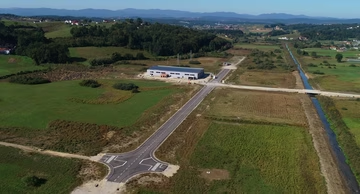
Former UK Prime Minister Tony Blair has called Brexit "tragic" and said that Boris Johnson faces a steep challenge in trying to negotiate a trade deal with the European Union by the end of 2020, without making significant concessions.
Blair, who was Prime Minister between 1997 and 2007, does not support Britain's departure from the EU and campaigned for a second Brexit referendum on the issue.
In an interview with CNN's Christiane Amanpour, Blair weighed in on the result of the UK general election, which saw his Labour Party suffer a historic defeat. Long-held Labour heartlands, known as the "red wall," fell to Johnson's Conservative Party, which ran on a promise to "Get Brexit Done."
The victory made Johnson the most powerful Prime Minister since Blair won a landslide for Labour in 1997.
Blair told CNN that Labour had made a catastrophic mistake in allowing a general election to be held on the single issue of Brexit.
"It's tragic. We should never have agreed a Brexit general election, by the way, it was crazy to mix the two issues up," Blair said.
"We should have had a decision by the British people on Brexit, self-standing as a decision, but we didn't."
Johnson's gamble to hold a snap general election on the future of the UK's relationship with the EU paid off spectacularly. His Conservative Party won a sizeable majority, which will allow him to get his Brexit deal through Parliament without any further delay and take Britain out of the bloc by the end of January.
After Johnson's deal is passed and ratified, the UK moves into an even more expansive and complicated negotiation period, setting out just how closely aligned it will stay to the EU on issues like the environment, competition, workers' rights and trade.
Johnson is hoping to secure a new trade agreement with the EU by December 2020, before the end of the so-called transition period -- during which the UK will be formally out of the bloc, but still subject to all its rules and regulations.
That's a quick turnaround, especially if Johnson seeks to diverge significantly from EU rules, as he has indicated.
If Johnson is serious about sticking to that timetable, then he must be prepared to compromise on just how deep and ambitious any potential deal might be, Blair said, adding that the new PM underestimates the size of that problem "at his peril."
"If you're deciding you want to make your own rules, and you still want access to the European markets, that's a tricky negotiation and I don't see any way that that can be concluded by the end of next year," Blair said.
"If he's serious and he says, 'right, we're going to legislate that we're out no matter what in 2020,' he's going to find that very difficult unless he's prepared to make a lot of concessions to Europe."
Kakvo je tvoje mišljenje o ovome?
Učestvuj u diskusiji ili pročitaj komentare





 Srbija
Srbija
 Hrvatska
Hrvatska
 Slovenija
Slovenija



























































